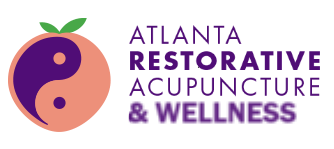Most people in the health field now know that meditation can be a terrific tool to manage stress and improve overall well-being. However, there is less enthusiasm among professionals for its role in healing depression. Given the heavy reliance on medication to treat depression in this nation (the US has 2/3 of the world’s consumers of anti-depressants), it is not surprising. We live in a “quick fix” nation in which people want immediate relief. Plus, for many people, the often debilitating experience of depression makes it hard for them to consider unconventional options. People in crisis understandably rely on medical authorities, preferring to turn over control of a difficult and sometimes crushing issue to medical authorities. Thus, self-help practices, especially ones that are shrouded in mystery for many people, like meditation, often get ignored. Meditation CAN play a very helpful role in the healing of depression, yet it would be false to say that there is no need for caution when considering meditation for severely depressed people. In this brief article, I will explain how meditation helps to heal depression, but will also explain why for some depression sufferers, caution is advised.
Meditation, specifically mantra meditation that easily fosters transcendence, helps by shifting attention to the silent witness that underlies all thought and action. This is the part of us that is independent of our observations, or beyond the circumstances of life. Regular contact with this most authentic aspect of ourselves leads to less identification with the particular set of experiences, and thoughts that are associated with the depression. Another term for this state of awareness is second attention. First attention is the awareness we typically use to carry out daily mundane activities. Since its focus is on many aspects of life that can be disappointing, or that can foster depression, it is useful to take a mini break from first attention at regular intervals. One does this through cultivation of second attention, or the awareness of the silent witness. When we meditate on a regular basis, we contact this essential part of our being. This awareness stays with us and positively affects our life outside of the meditation. In summary, meditation helps to foster a little detachment, so that the roles we play in our lives do not overwhelm and subsume us. A little less attachment allows us to be more light-hearted, to play our life roles with more abandon and passion, for the melodrama that comes with over-identifying with our problems is out.
Nevertheless, for those suffering from major depression, it is important to proceed with caution in employing meditation as a self-help measure. The reason for caution when considering meditation for major or severe depression, is related to one of its advantages; the practice of meditation can release old wounds, difficult memories, and perhaps the contributing emotions that are linked to depression. For a person who needs to let go of tension, and even those with mild to moderate depression, this comes as a boon. But for the severely depressed, it can be too much at once.
Still, in a context of proper medical, and psychological care, and with appropriate modification, meditation can still help even those with severe depression. From my experience, people with major depression do better with meditation when they keep their meditations shorter AND when practiced in a group setting or with someone close to them. This helps avoid rapid release of old wounds, memories, and emotions that can be too unsettling for the severely depressed person, and creates a safer space for the person troubled by depression. One can start out simply paying attention to the breath for about ten minutes. Both mindfulness and mantra meditation can help with depression, but some people may prefer one or the other. If someone finds the mirror of Mindfulness meditation to be too confrontational, mantra meditation may be the better option. For those who experience too quick of a release of stress and old wounds with mantra meditation, mindfulness meditation may be the better option.
If you or someone you know is experiencing mild to moderate depression, meditation is a safe, inexpensive, and empowering self-care option that will lead to a lifetime of health dividends. For those with major depression, please check with your health care providers first and use the modifications I recommended. As a Chopra Center for Well-being certified meditation instructor, I teach Primordial Sound Meditation at the MindBody Wellness Atlanta Center. Each month, I offer classes in this ancient technique. With proper instruction, the practice of meditation can be done with ease by anyone, and can fit into your daily routine. To learn more about or register for this four session class, taught over a total of around 5 to 6 hours, over two days, please visit the following links:
David Blake Jones, L.Ac., M.S.P.H.
